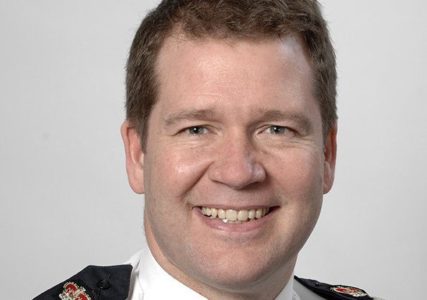By James Simons-
A police chief who paid a child rapist £10,0000 to catch a child sex gang, has attempted to justify his actions.
Steve Ashman told the BBC that he was ”morally right” to make the huge payment to the child rapist, who himself has served a prison sentence for rape.
On Wednesday, 18 people of mainly Asian backgrounds were convicted of sexual exploitation and drug offences, most of which took place at parties.
The police have been criticised by the NSPCC for paying such a huge amount to the child rapist to catch other members of the child sex gang. Jim Gamble, the former head of the Child Exploitation and Online protection Centre said : ”personally, I can’t envisage circumstances where I would have authorised payment to someone convicted of rape. I can’t imagine how you could have control mechanisms in place with an informant of that type that you were going to task that would give reassurance that they still didn’t present a risk to young and vulnerable women”. Ashman said the payment led to the police putting dangerous men behind bars and protecting vulnerable women and girls in a manner that would not have been possible without the payment.
”The recruitment and registering of any informant is carefully risk assessed against the potential gains we can get from using that individual” . However, with £10,000 in the bank account of a child rapist, it doesn’t take much to imagine how much more sexual manipulation he would be capable of doing. Unless his every move was being monitored by police in great detail, there is no way they would know whether he was posing a further threat to other vulnerable girls. The court hearing took place over a four year period between 2011 and 2014 over the course of four trials and involved the testimony of 20 young women. The defendants were found guilty of piling the victims with alcohol and drugs before forcing them to have sex.
Northumbria police asked their informant to bring them more information about the parties, without attending them himself. Police claim to have told the man that he would be arrested if he attended the parties himself. The threat of an arrest for attending the parties could only happen if the police knew where the parties where taking place, in which case they wouldn’t need the man’s help specifically. Police initiative to pay the man may have produced some result, but the amount paid was far too much. How a child rapist can be rewarded with £10,000 is incredible, no matter the object of the payment. A much smaller fee would have achieved the same outcome, or even favours like paying his bills, buying him clothes and food, would have been considered a wiser option than loading the account of a convicted child rapist with £10,000. Steve Askamn surely cannot tell the world what the convicted rapist did with that £10,000. He could have invested 20 or 30 % of it on drugs, used the same figure to lure vulnerable girls on any given evening or night with drugs and alcohol, and Northumbria police may never have heard a thing if there was no incident of rape or if there was, but it wasn’t reported.
The end doesn’t always justify the means, although the result of multiple convictions is a welcome and positive one. A review should take place about the way police can use cash to achieve desirable outcomes of arrests and convictions. Ashley’s intentions were definitely noble, but the process used remains very questionable. It is unsurprising that the NSPCC have questioned the act of cash payment to a convicted rapist, because it appears so odd and improper to significantly improve the standard of living of a rapist by £10,000, just to catch others.




